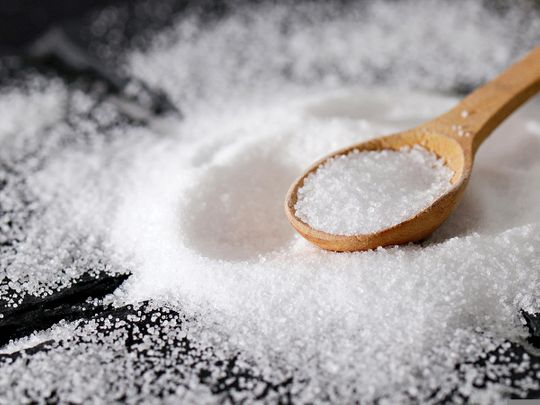
If a plate of food lacks something – that mysterious X-factor or je ne sais quoi – it’s probably because it’s missing a small but significant ingredient: salt.
Click start to play today’s Crossword where “salted” makes an appearance in one of the answers to the clues.
We humans love salt. As if it were magical pixie dust, it transforms food and almost always makes it taste better. Scientists aren’t exactly sure where our love for salt comes from, and whether it’s a product of ‘nature’ or ‘nurture’.
A worldwide study of salt consumption, conducted in 1988 and published in the UK-based medical journal The BMJ (previously known as the British Medical Journal), proposed that we are born with a taste for salty foods. The study found that people all across the planet (except isolated tribes where salt was not easily available) consumed more or less the same amount of sodium.
However, the scientific community and even regular folk now know that too much salt is bad for you. High salt intake is known to lead to heart attack, stroke and even death. It’s why the World Health Organisation (WHO), the US Centres for Disease Control and Prevention (CDC) and other organisations around the world have agreed to work to reduce global intake of salt by a relative 30 per cent by 2025.
Just limiting our salt intake has been identified as one of the most cost-effective measures countries can take to improve their population’s health, according to WHO’s website. And some food companies in the US, such as Kraft and PepsiCo, have pledged to voluntarily reduce sodium across their products.
But staying away from the salt shaker may be harder for some than others.
A 2010 study by the US-based Pennsylvania State University, published in the journal Physiology and Behaviour, found that people who are supertasters, are genetically wired to love salt. Taste sensitivity is genetic, and researchers found it may partly depend on the number of tiny bumps on your tongue, called papilla, that house your taste buds. You can even see how many papillae you have, by painting your tongue with a cotton swab dipped in some blue food dye.
Supertasters have far more papillae than non-tasters. They need less fat and sugar to satisfy their cravings, and experience tastes such as saltiness and bitterness more intensely than others. So, they may have a difficult time with low-sodium alternatives.
Would salt restrictions affect your food consumption? Play today’s Crossword and let us know at games@gulfnews.com.









